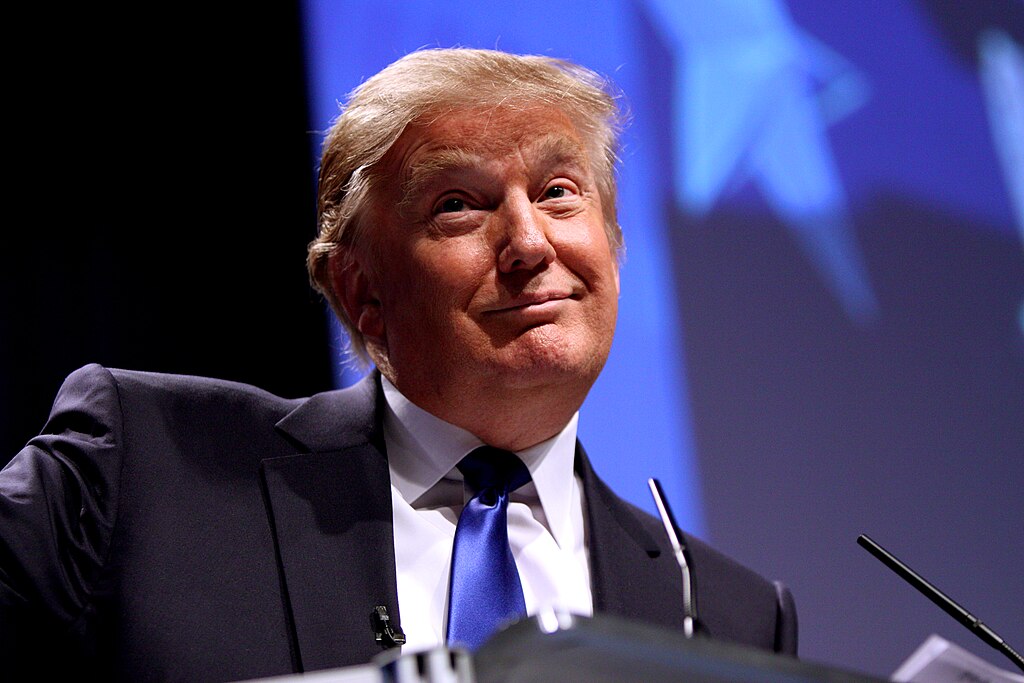Donald Trump is under fire once again, this time for his complaints about the upcoming debate with Vice President Kamala Harris. As the political spotlight intensifies ahead of the highly anticipated event, Trump’s recent public statements have sparked widespread criticism, with many accusing the former president of whining and attempting to preemptively discredit the debate’s fairness.
During a press conference in New York City, Trump expressed frustration over the debate setup, directing his ire at the event's moderator, ABC's George Stephanopoulos, and the network as a whole. Trump's complaints centered on what he perceived as bias, calling ABC "the nastiest" and claiming the network is worse than other media outlets, even naming NBC in comparison. He further alleged a network-wide conspiracy, pointing to personal connections between Harris and ABC executives. The former president painted the debate as rigged from the start, characterizing it as an ambush planned to favor his opponent.
This kind of rhetoric has become a staple of Trump's political strategy, but this time, critics are reacting with palpable frustration. Many are pointing out that Trump's behavior is more about undermining the debate’s legitimacy than focusing on substantive policy issues. His detractors argue that Trump’s ongoing victim narrative is a sign of weakness, not strength, and reflects poorly on his ability to face Harris in an open discussion. They question why a political figure who prides himself on toughness continues to complain about what he describes as unfair treatment, especially in such a public and preemptive manner.
The backlash to Trump’s remarks has been swift and unforgiving. Pundits and observers alike have pointed out that this pattern of complaints has been a hallmark of Trump's political career. From election results to media coverage, Trump’s playbook often involves casting doubt on the fairness of any process where he feels disadvantaged. This tactic, however, appears to be wearing thin, with growing numbers of critics labeling it as childish and unbecoming of a presidential candidate.
Some have gone so far as to call Trump the "biggest crybaby" in American politics, accusing him of constantly playing the victim whenever things don’t go his way. Social media erupted with reactions, many mocking his complaints and likening his behavior to that of a spoiled child rather than a seasoned political leader. The consistent theme among critics is that Trump’s grievances are more about deflecting attention from his performance and creating an excuse should the debate not go in his favor.
As the debate approaches, the focus has increasingly shifted away from policy discussions and onto Trump’s personal attacks and complaints. For Harris, this could prove to be an advantage. She has remained relatively quiet in response to Trump’s criticisms, allowing the negative reactions to his statements to build momentum on their own. By staying above the fray, Harris may be positioning herself as the more composed and prepared candidate in what is expected to be a contentious exchange.
With the clock ticking down to the debate, the question on many minds is whether Trump will shift his focus to substantive policy discussions or continue to cast doubt on the process. Either way, the stage is set for a high-stakes political showdown that will likely define the next phase of this election cycle.



 U.S. Lawmakers to Review Unredacted Jeffrey Epstein DOJ Files Starting Monday
U.S. Lawmakers to Review Unredacted Jeffrey Epstein DOJ Files Starting Monday  Federal Judge Restores Funding for Gateway Rail Tunnel Project
Federal Judge Restores Funding for Gateway Rail Tunnel Project  Taiwan Says Moving 40% of Semiconductor Production to the U.S. Is Impossible
Taiwan Says Moving 40% of Semiconductor Production to the U.S. Is Impossible  Trump’s Inflation Claims Clash With Voters’ Cost-of-Living Reality
Trump’s Inflation Claims Clash With Voters’ Cost-of-Living Reality  Anutin’s Bhumjaithai Party Wins Thai Election, Signals Shift Toward Political Stability
Anutin’s Bhumjaithai Party Wins Thai Election, Signals Shift Toward Political Stability  Trump Lifts 25% Tariff on Indian Goods in Strategic U.S.–India Trade and Energy Deal
Trump Lifts 25% Tariff on Indian Goods in Strategic U.S.–India Trade and Energy Deal  Bosnian Serb Presidential Rerun Confirms Victory for Dodik Ally Amid Allegations of Irregularities
Bosnian Serb Presidential Rerun Confirms Victory for Dodik Ally Amid Allegations of Irregularities  India–U.S. Interim Trade Pact Cuts Auto Tariffs but Leaves Tesla Out
India–U.S. Interim Trade Pact Cuts Auto Tariffs but Leaves Tesla Out  Nicaragua Ends Visa-Free Entry for Cubans, Disrupting Key Migration Route to the U.S.
Nicaragua Ends Visa-Free Entry for Cubans, Disrupting Key Migration Route to the U.S.  Trump Backs Nexstar–Tegna Merger Amid Shifting U.S. Media Landscape
Trump Backs Nexstar–Tegna Merger Amid Shifting U.S. Media Landscape  Trump Allows Commercial Fishing in Protected New England Waters
Trump Allows Commercial Fishing in Protected New England Waters  Trump Signs Executive Order Threatening 25% Tariffs on Countries Trading With Iran
Trump Signs Executive Order Threatening 25% Tariffs on Countries Trading With Iran  Jack Lang Resigns as Head of Arab World Institute Amid Epstein Controversy
Jack Lang Resigns as Head of Arab World Institute Amid Epstein Controversy  Ghislaine Maxwell to Invoke Fifth Amendment at House Oversight Committee Deposition
Ghislaine Maxwell to Invoke Fifth Amendment at House Oversight Committee Deposition  Bangladesh Election 2026: A Turning Point After Years of Political Suppression
Bangladesh Election 2026: A Turning Point After Years of Political Suppression  Trump Says “Very Good Talks” Underway on Russia-Ukraine War as Peace Efforts Continue
Trump Says “Very Good Talks” Underway on Russia-Ukraine War as Peace Efforts Continue 































